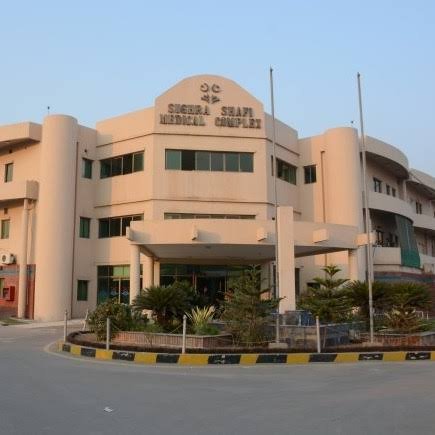Medical Laboratory Technology (MLT) Overview
Medical Laboratory Technology (MLT) is an exciting profession necessitating detailed and accurate estimation skills and intense problem-solving and judgment abilities that apply the basic sciences to the clinical diagnosis of health and disease. Medical Laboratory Technologists are educated in the theoretical and practical aspects of laboratory medicine. As vital members of the health care team, laboratory professional provides information necessary for the diagnosis and treatment of disease.
MLT Curriculum and Practice
BS (Hons). Medical Laboratory Technology is a blend of basic sciences and medical sciences that will educate students to practice in the disciplines of haematology, immunology/serology, microbiology, chemistry, blood banking, histopathology/histotechnology and molecular diagnostics. Medical laboratory scientist may practice in hospitals, independent commercial laboratories, clinics, physician offices, blood banks, public health departments, ambulatory care centers and other settings. Medical Laboratory Technology offers a wide variety of career options, including research, business, industry, sales and marketing
Career Options and Practice Settings
Laboratory analysis by the medical laboratory scientists plays a critical role with the physician in the diagnosis and treatment of disease and the maintenance of health. Medical Laboratory scientists are professionals who are only prepared to produce laboratory data, but also to assure the quality of those data, compare and select laboratory methods, advise other health care workers on the validity of data, and supervisor ancillary laboratory personnel.
Role of Medical Laboratory Scientists in Healthcare
Medical laboratory scientists are health Care Professionals trained in the art and technology of the clinical laboratory medicine to work in clinical chemistry, hematology, immunohematology, immunology and microbiology with various sub-specialists in each of these major areas. The graduates have a wide choice of practice settings: hospitals, independent laboratories, clinics, public health facilities, forensic crime laboratories, research or pharmaceutical industries, sales and marketing of diagnostic instruments and reagents, federal and state regulatory agencies, and research and development of future clinical tests and instruments. The professional course work includes didactic courses, student laboratory instruction, and clinical internship experience in various diagnostic laboratories and hospitals.
Admission Eligibility Criteria
60% Marks in F.Sc (Pre-medical)



